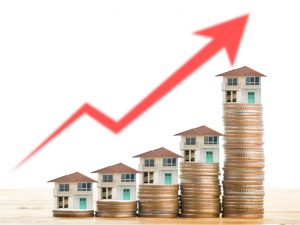Taxes when selling a property in spain
When you choose to sell your property in Spain apart from the agency fees you might be obliged to pay the following taxes;
Plusvalía Tax
Plusvalía is a municipal tax paid to the local townhall and is based on the increase of the official value of the land between the purchase and sale dates.
The plusvalía or land value tax is the tax applied to the increase of the value of the urban land once a property is transferred, sold, inherited, or received after a donation.
This tax does not apply to the property itself, but to the value of the land it occupies.
When you bought the property you are planning to sell, the land in which it is located on had a value X. Now that you want to sell this value of the land may have increased (X + increase of value). And that increase is in part due to the improvements the town hall has made to the area and its surroundings.

There are more supermarkets nearby, better infrastructures, perhaps more public transport connections, etc.
So the plusvalía tax is the way the town hall has to capture that increase in value that is correlated to their public investments and improvements.
It is important to stress that Plusvalía only captures the increase in urban land value. Meaning that if the property is located in the countryside, this tax will be non existent or very little.
Also, it is important to mention that when the seller is a non-tax resident in Spain, the purchaser will be liable for this tax. Why? Because if the seller is in charge of paying it but fails to do so (because he is not in Spain) the Spanish tax authorities will go after the new owner. For this reason the buyer of the property will retain the money for the Plusvalía to pay on behalf of the seller, to guarantee the tax will be paid.
Non resident tax
According to Spanish Law (article 25.2 of Royal Decree 5/2004 that regulates Non-Resident Tax) if a non-resident sells a property in Spain, the buyer must withhold 3% of the purchase price and deposit it into the Public Treasury within one month in the name of the seller.
This payment is treated as an adva nced payment of capital gains ( see below).
If the non-resident taxpayer has made a loss or the tax liability is less than 3%, he/she will have to apply for a refund of the excess.
 Capital Gains
Capital Gains
The capital gains tax is a tax paid by non-residents and residents that is applied when benefits are obtained from the sale of a property, that is, when the sale value exceeds the purchase value. In the case of residents, they will pay between 19% and 26% depending on the benefit obtained and some of the existing bonuses may be applied. For non-residents the rate will be 19% for non residents from EU/EEA countries or 24% for non residents from other countries.
The tax is based on the net profit made when selling a property, which is calculated by deducting the original purchase price (including VAT, Land Registry fees, property transfer tax and legal and notary fees) from the final sale price (less costs incurred during the sale).
There are a few exceptions and strategies that can be used to avoid paying Capital Gains Tax. For example, if you purchase another home as your sole, main residence using the proceeds from the sale of a property that you also used as your sole, main residence only then you are legally exempt from paying Capital Gains Tax. Also, if you are over 65 years old then you are not required to pay Capital Gains Tax, but you must have lived in the property as your sole, main residence for a minimum of three years prior to the sale of your property.
Lawyer Fees
We recommend that you use a lawyer to act on your behalf in the selling transaction. A lawyer will help calculate the costs and make sure everything is in your best interest
once there is a buyer. We work alongside many lawyers that we can recommend.
